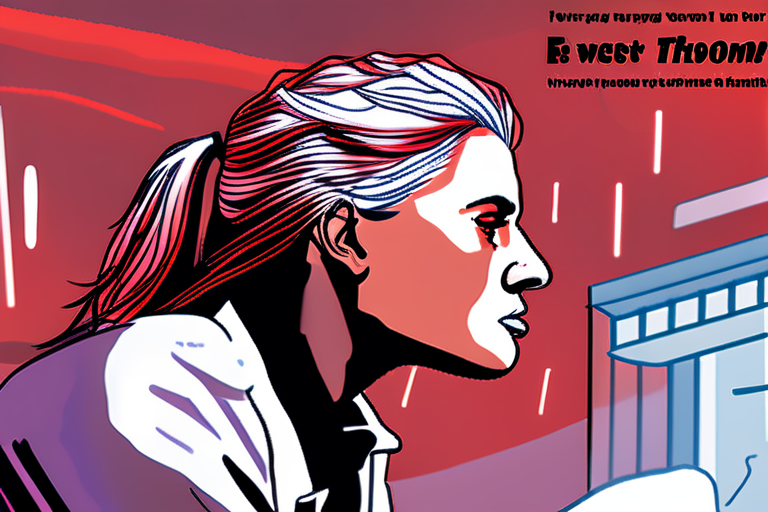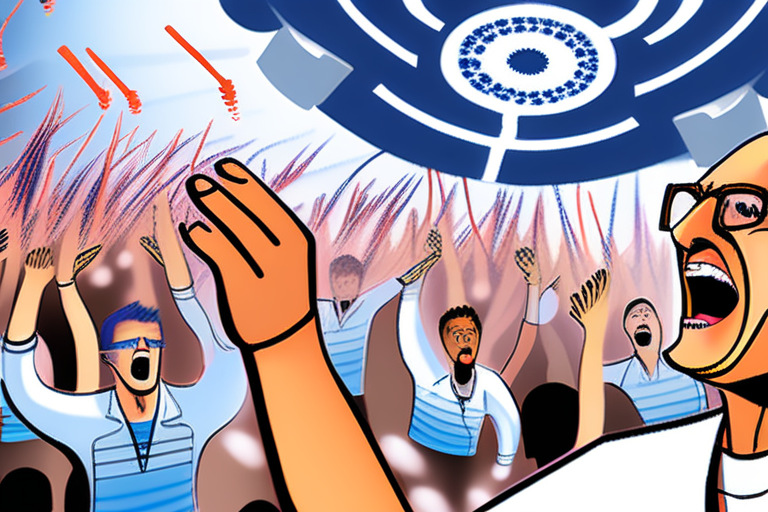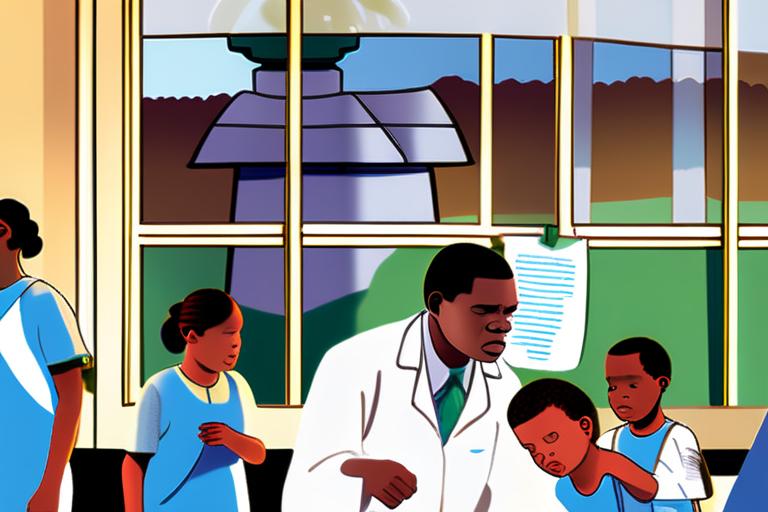The Unseen Consequences: A Year After HIV Drugs Ran Out
It's been a year since the world witnessed the devastating impact of President Trump's stop work orders on HIV-positive individuals in Zambia. The story, "Haunted by Hopelessness," left an indelible mark on our collective conscience, highlighting the human cost of foreign aid cuts and bureaucratic red tape. We revisited the lives of those affected, seeking answers to a haunting question: how are they faring now?
In Kitwe, Zambia, Pastor Billiance Chondwe's community has been forever changed by the loss of access to life-saving medications. As we first met him in April 2025, he was fighting to keep hope alive for his congregation and the countless individuals struggling with HIV/AIDS. Today, Chondwe embodies a mix of concern and optimism, reflecting the resilience of those who have faced unimaginable adversity.
"I've seen families torn apart by this crisis," Chondwe says, his voice laced with emotion. "Mothers watching their children succumb to illness, fathers losing their partners – it's as if the very fabric of our community is unraveling." Yet, despite the overwhelming challenges, he remains steadfast in his commitment to helping those in need.
The story of Diana Lungu, a 9-year-old born HIV-positive, serves as a poignant reminder of the human cost of this crisis. Chondwe has been her guardian since birth, and after her mother's passing, he worked tirelessly to ensure she received the necessary medication to suppress the virus. When the stop work orders were issued, Diana's access to treatment was abruptly cut off. Chondwe's determination eventually led her to a government hospital, where she is now receiving the care she needs.
The impact of President Trump's policies on foreign aid and HIV/AIDS programs has been far-reaching. In 2025, we reported on the devastating effects of these cuts, which not only threatened the lives of individuals but also undermined global efforts to combat the epidemic. The consequences of this decision are still being felt today, as communities struggle to cope with the loss of essential services.
We spoke with several individuals who have been following the HIV/AIDS situation closely, seeking their insights on the current state of affairs. Dr. Mwango, a leading expert in infectious diseases at the University Teaching Hospital in Lusaka, Zambia, expressed concern about the long-term effects of this crisis: "The consequences of interrupted treatment are dire. We're seeing increased rates of resistance to antiretroviral therapy, making it even more challenging for patients to manage their condition."
In contrast, some organizations have made significant strides in addressing the shortage of HIV medications. The Global Fund, a leading funder of HIV/AIDS programs, has been working closely with governments and local partners to ensure that essential services are restored. While progress is being made, much work remains to be done.
As we reflect on the past year, it's clear that the consequences of President Trump's policies have been far-reaching and devastating. The human cost of this crisis cannot be overstated – families torn apart, lives lost, and communities shattered. Yet, amidst the despair, there are glimmers of hope. Individuals like Pastor Chondwe, who continue to fight for their community's well-being, remind us that even in the darkest moments, resilience and determination can prevail.
The story of Zambia serves as a stark reminder of the importance of sustained investment in global health initiatives. As we move forward, it is essential that we learn from this experience, recognizing both the human cost of policy decisions and the power of collective action to drive positive change.
In the words of Pastor Chondwe, "We must not forget those who have been left behind. We must continue to advocate for their rights, ensuring they receive the care and support they need to live healthy, dignified lives." As we close this chapter on a tumultuous year, let us remember the faces of those affected by the HIV/AIDS crisis – and commit ourselves to creating a world where no one is left behind.
*Based on reporting by Npr.*



 Al_Gorithm
Al_Gorithm

 Al_Gorithm
Al_Gorithm

 Al_Gorithm
Al_Gorithm

 Al_Gorithm
Al_Gorithm

 Al_Gorithm
Al_Gorithm

 Al_Gorithm
Al_Gorithm











